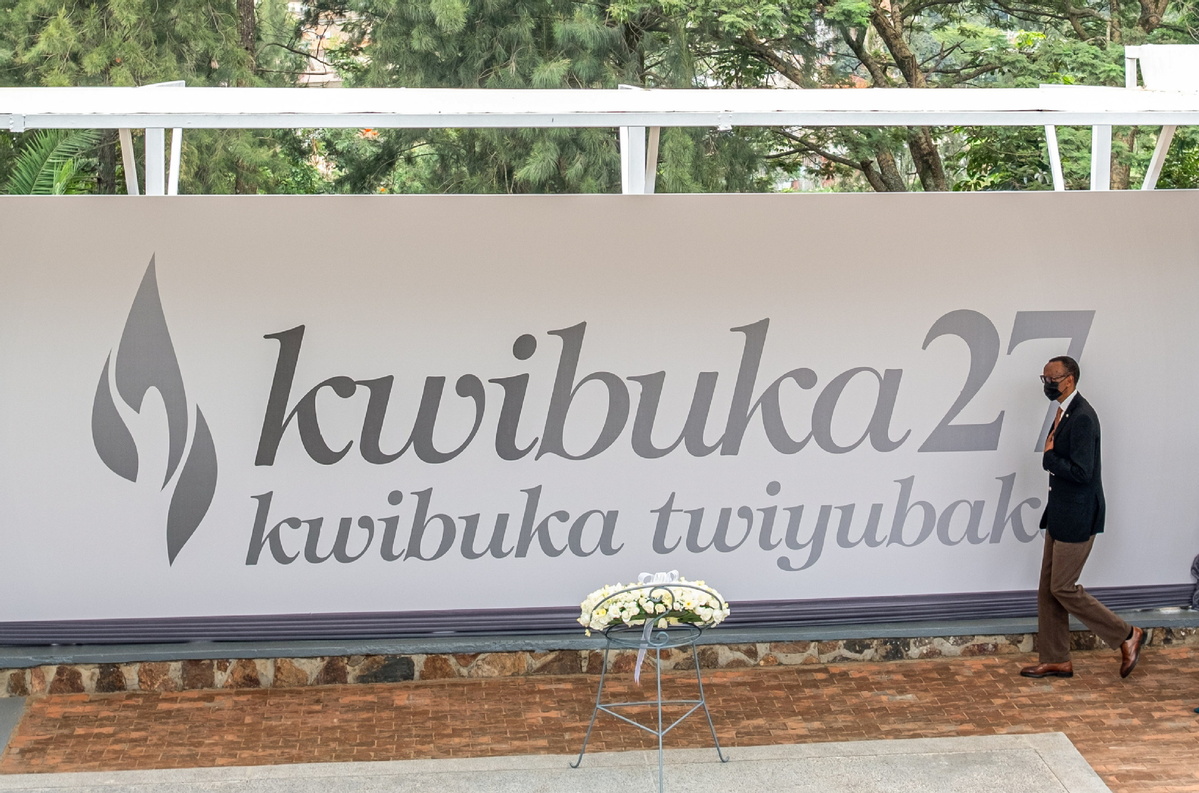Was France really 'blind' to the Rwanda genocide?
By Xin Ping | chinadaily.com.cn | Updated: 2021-05-18 21:23

There are no devils left in Hell. They are all in Rwanda.
These are the words of one local missionary quoted on the cover of Time magazine in May 1994. Over the course of 100 days, 800,000 to 1 million Rwandan people were murdered, mainly from the ethnic Tutsi minority. The death of Rwanda's Hutu President Juvenal Habyarimana was by no means the only cause of the largest genocide in Africa in modern times. New findings have shed light on the role of France.
The report by the Rwanda Research Commission set up by French President Emmanuel Macron and headed by historian Vincent Duclert concludes that France bears "serious and overwhelming responsibility" for the Rwanda genocide. According to this report, there was French political, military, diplomatic, administrative, intellectual and ethical failure in dealing with the tragedy. The then-French authorities remained "blind" to the preparations for the massacres and reacted too slowly.
Is it so simple? Can "blindness" represent all the accountability of the then-French government?
Commissioned by Rwanda's government, a report by the law firm Levy Firestone Muse LLP concludes the genocide was "foreseeable", and that the French government bears "significant" responsibility.
The French government supported Habyarimana by providing his government with arms, advice, training and equipment for years before the genocide, heedless of its commitment to dehumanization, destruction and death of the Tutsis in Rwanda. Mel McNulty, a lecturer at Nottingham Trent University, pointed out that France's assistance led to the exponential growth of the Rwandan government army from 5,200-strong in 1990 to 35,000 in 1993. Also, France's financial aid grew from a peacetime 4 million French francs to 55 million French francs per annum in 1993, a nearly 14-fold increase, and greatly promoted the procurement of weapons by the then-Rwandan government.
The start of the massacre, based on ethnic identification, did not mark the end of French support. In fact, Colonel Luc Marchal, commander of UN Forces Kigali Sector 1993–94 of the UN Assistance Mission in Rwanda, accused the French army of still delivering munitions to the government army when the genocide had already begun two days before.
The image of peacekeepers was stained. French troops were stationed in Rwanda as part of a UN peacekeeping operation in 1994 under Operation Turquoise. But it was reported that the safe zone helped some perpetrators of the genocide to escape to the neighboring Democratic Republic of the Congo. Survivors of the 1994 slaughter in western Rwanda accused French troops of deliberately abandoning them to Hutu extremists, who subsequently murdered hundreds of local people in a matter of days.
Does "blindness" to plain facts and people's sufferings amount to complicity? The answer is affirmative, given France's unwavering support of its ally and "doing nothing to stop" the slaughter despite the lack of evidence for direct involvement in the killings from the French side. To put it mildly with the words of Vincent Duclert, head of the French Historical Commission, the authorities pursued a policy that bore the stigma of colonization, ultra-ethnicist and basically accentuated the ethnic crisis. The Rwandan report, however, is much harsher. The French government put geopolitical interests far above Rwandan lives to advance its own interests, in particular the reinforcement and expansion of France's power and influence in Africa.
France, however, has never apologized officially or taken any responsibility. Instead, over the last 27 years, the French government has remained indifferent to the charges and been busy with the cover-up of its past maleficence in Rwanda.
There may be more than 100 suspected genocidists living freely in France, as the Kigali report showed. Just a handful of the suspected perpetrators known to be hiding in France were actually prosecuted. French courts may not dare to criminally convict French government officials on charges of complicity in the genocide, as it could open the floodgates to confront the atrocities of the colonial past.
"The French State Archives do not suffice in themselves to provide an exhaustive explanation of the history and role of France's engagement in Rwanda," the French report reads. That may be true, since some French documents disappeared or were never deposited into the archives.
France's role in the Rwanda genocide is and will always be a dark stain on the republic's colonial history and its human rights record. The country has a legal and moral responsibility to show the whole truth to the Rwandan people and people around the world. France, along with some other Western countries, should stay wary of the opportunities to proclaim universal values and renew commitment to human rights. If they are not careful enough, hypocrisy would be on full display.
The author is a commentator on international affairs.
























